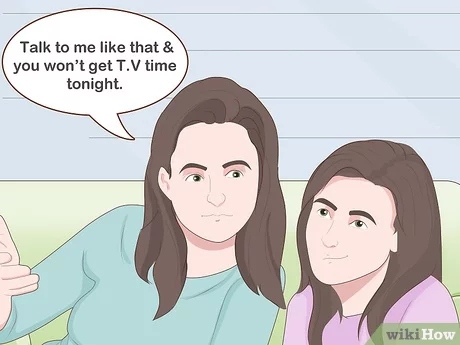If you’re a parent, then you know how frustrating it can be to deal with a teenager who talks back. It can be tempting to just give up and let them have their way, but that’s not always the best solution. In this article, we’ll give you some tips on how to stop teen back talk.
1. Your response matters
Here’s what you need to know about how to stop teen back talk. It’s hard to believe, but the way you respond to your teen’s back talk can actually make the situation worse.
2. Stay calm
When you’re a teenager, it’s easy to get wrapped up in the moment and forget to think about the consequences of your words. But when you’re in the middle of a disagreement with your parents, it’s important to stay calm and think about what you’re saying. If you can keep your cool, you’ll be more likely to get your point across and be heard.
3. Give them positive attention
This will help them feel appreciated and may help to reduce their back talk. It’s easy to get wrapped up in their negative behavior and forget to focus on the good. It’s important to give your teen positive attention, even if they’re acting out. Try to take a step back and give them compliments when they deserve it.
4. You need to give them some power over their lives.
Here are some tips on how to stop teen back talk. However, when this desire manifests itself in the form of back talk, it can be frustrating for parents. It’s normal for teenagers to want more independence and control over their lives.
5. Consequences need to be clear and consistent
It’s normal for teenagers to want to assert their independence, and part of that is testing the limits with their parents. However, when back talk becomes a regular occurrence, it’s important to nip it in the bud. Consequences need to be clear and consistent in order for teenagers to understand that this behavior is not acceptable.

There are a few different ways to handle back talk, but the most important thing is to be consistent with whatever method you choose. This will help your teenager understand that their behavior is not acceptable and that they need to change it. Whether you choose to ignore it, give a warning, or take away privileges, the consequences should be the same every time.
Frequently Asked Questions
1. What is back talk?
Back talk is when a person, usually a teenager, speaks to someone in a disrespectful or insolent way. This can happen in person or online, and it can be directed at anyone, from a friend to a teacher to a parent.
2. Why do teenagers do it?
There can be a lot of reasons why a teenager might engage in back talk. They might be feeling angry, frustrated, or misunderstood. Maybe they want attention or they’re trying to test boundaries. Or they could simply be imitating the way they’ve seen others speak.
3. Is back talk a phase?
For some teenagers, back talk is a phase that they eventually outgrow. For others, it becomes a habit that’s hard to break.
4. How can I get my teenager to stop back talking?
There is no one-size-fits-all answer to this question. You’ll need to figure out what’s motivating your teenager’s back talk, and then address that issue. You might also want to set some clear rules and consequences for back talk, and be consistent in enforcing them.
5. What are some possible consequences for back talk?
Consequences for back talk can vary depending on the severity and frequency of the behavior. They might include losing privileges, being grounded, or being sent to time-out. For more serious offenses, you might consider talking to a counselor or therapist.
Final thoughts
There are many ways to stop teen back talk, but the most important thing is to be consistent. If you let your teen get away with back talking once, they will likely do it again. Be firm and consistent in your expectations and follow through with consequences if they occur. With a little patience and effort, you can help your teen learn to respect you and communicate more effectively.